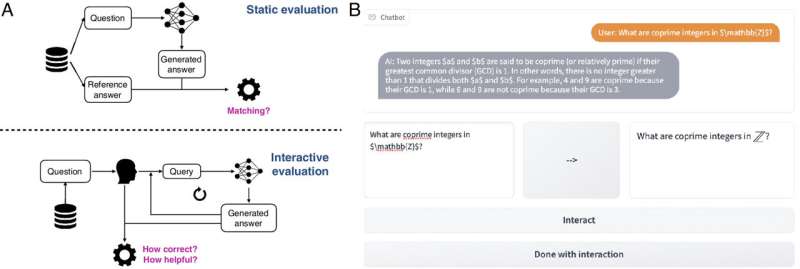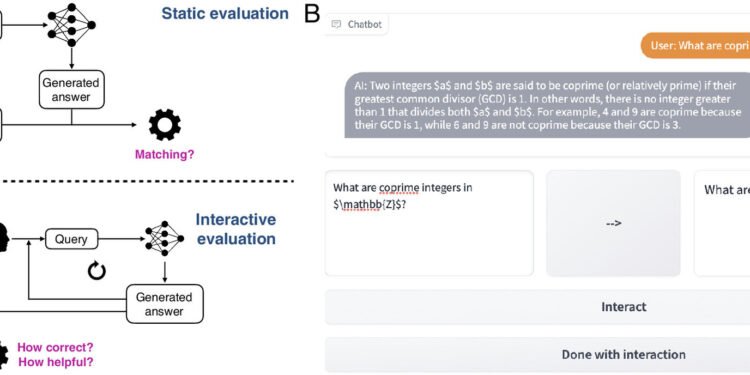
A team of computer scientists, engineers, mathematicians and cognitive scientists, led by the University of Cambridge, have developed an open-source evaluation platform called CheckMate, which allows human users to interact with and evaluate the performance of large language models (LLMs).
The researchers tested CheckMate in an experiment where human participants used three LLMs—InstructGPT, ChatGPT and GPT-4—as assistants for solving undergraduate-level mathematics problems.
The team studied how well LLMs can assist participants in solving problems. Despite a generally positive correlation between a chatbot’s correctness and perceived helpfulness, the researchers also found instances where the LLMs were incorrect, but still useful for the participants. However, certain incorrect LLM outputs were thought to be correct by participants. This was most notable in LLMs optimized for chat.
The researchers suggest models that communicate uncertainty, respond well to user corrections, and can provide a concise rationale for their recommendations, make better assistants. Human users of LLMs should verify their outputs carefully, given their current shortcomings.
The results, reported in the Proceedings of the National Academy of Sciences, could be useful in both informing AI literacy training, and help developers improve LLMs for a wider range of uses.
While LLMs are becoming increasingly powerful, they can also make mistakes and provide incorrect information, which could have negative consequences as these systems become more integrated into our everyday lives.
“LLMs have become wildly popular, and evaluating their performance in a quantitative way is important, but we also need to evaluate how well these systems work with and can support people,” said co-first author Albert Jiang, from Cambridge’s Department of Computer Science and Technology. “We don’t yet have comprehensive ways of evaluating an LLM’s performance when interacting with humans.”
The standard way to evaluate LLMs relies on static pairs of inputs and outputs, which disregards the interactive nature of chatbots, and how that changes their usefulness in different scenarios. The researchers developed CheckMate to help answer these questions, designed for but not limited to applications in mathematics.
“When talking to mathematicians about LLMs, many of them fall into one of two main camps: either they think that LLMs can produce complex mathematical proofs on their own, or that LLMs are incapable of simple arithmetic,” said co-first author Katie Collins from the Department of Engineering. “Of course, the truth is probably somewhere in between, but we wanted to find a way of evaluating which tasks LLMs are suitable for and which they aren’t.”
The researchers recruited 25 mathematicians, from undergraduate students to senior professors, to interact with three different LLMs (InstructGPT, ChatGPT, and GPT-4) and evaluate their performance using CheckMate. Participants worked through undergraduate-level mathematical theorems with the assistance of an LLM and were asked to rate each individual LLM response for correctness and helpfulness. Participants did not know which LLM they were interacting with.
More information:
Katherine M. Collins et al, Evaluating language models for mathematics through interactions, Proceedings of the National Academy of Sciences (2024). DOI: 10.1073/pnas.2318124121
University of Cambridge
Citation:
New open-source platform allows users to evaluate performance of AI-powered chatbots (2024, June 4)
retrieved 5 June 2024
from https://techxplore.com/news/2024-06-source-platform-users-ai-powered.html
This document is subject to copyright. Apart from any fair dealing for the purpose of private study or research, no
part may be reproduced without the written permission. The content is provided for information purposes only.








